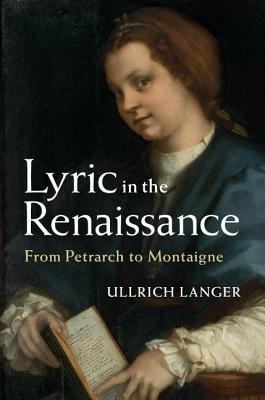
- We will send in 10–14 business days.
- Author: Ullrich Langer
- Publisher: Cambridge University Press
- ISBN-10: 1107110289
- ISBN-13: 9781107110281
- Format: 15.5 x 23.1 x 2.3 cm, kieti viršeliai
- Language: English
- SAVE -10% with code: EXTRA
Reviews
Description
Moving from a definition of the lyric to the innovations introduced by Petrarch's poetic language, this study goes on to propose a new reading of several French poets (Charles d'Orléans, Ronsard, and Du Bellay), and a re-evaluation of Montaigne's understanding of the most striking poetry and its relation to his own prose. Instead of relying on conventional notions of Renaissance subjectivity, it locates recurring features of this poetic language that express a turn to the singular and that herald lyric poetry's modern emphasis on the utterly particular. By combining close textual analysis with more modern ethical concerns this study establishes clear distinctions between what poets do and what rhetoric and poetics say they do. It shows how the tradition of rhetorical commentary is insufficient in accounting for this startling effectiveness of lyric poetry, manifest in Petrarch's Rime Sparse and the collections of the best poets writing after him.
EXTRA 10 % discount with code: EXTRA
The promotion ends in 21d.18:34:08
The discount code is valid when purchasing from 10 €. Discounts do not stack.
- Author: Ullrich Langer
- Publisher: Cambridge University Press
- ISBN-10: 1107110289
- ISBN-13: 9781107110281
- Format: 15.5 x 23.1 x 2.3 cm, kieti viršeliai
- Language: English English
Moving from a definition of the lyric to the innovations introduced by Petrarch's poetic language, this study goes on to propose a new reading of several French poets (Charles d'Orléans, Ronsard, and Du Bellay), and a re-evaluation of Montaigne's understanding of the most striking poetry and its relation to his own prose. Instead of relying on conventional notions of Renaissance subjectivity, it locates recurring features of this poetic language that express a turn to the singular and that herald lyric poetry's modern emphasis on the utterly particular. By combining close textual analysis with more modern ethical concerns this study establishes clear distinctions between what poets do and what rhetoric and poetics say they do. It shows how the tradition of rhetorical commentary is insufficient in accounting for this startling effectiveness of lyric poetry, manifest in Petrarch's Rime Sparse and the collections of the best poets writing after him.


Reviews